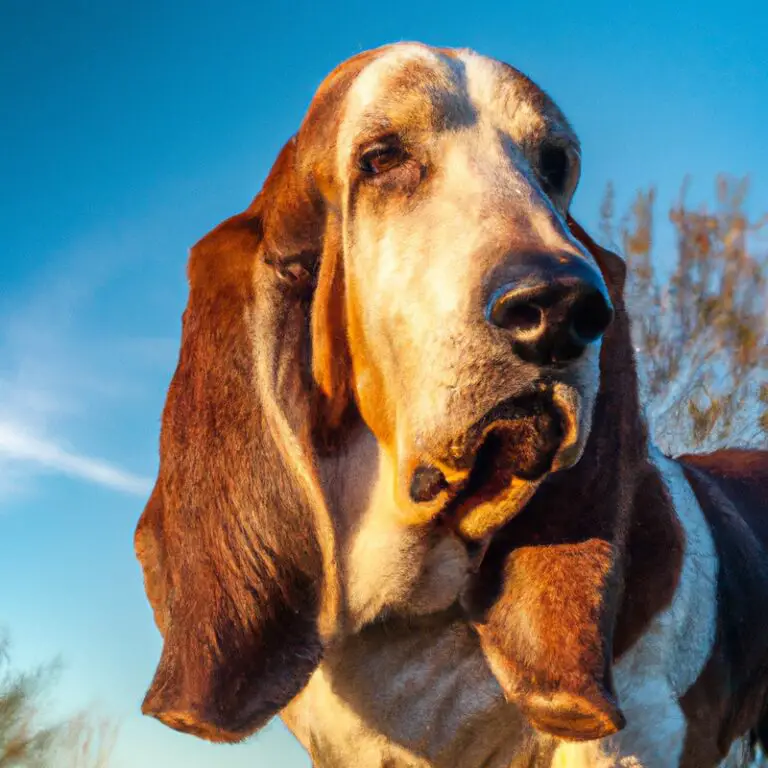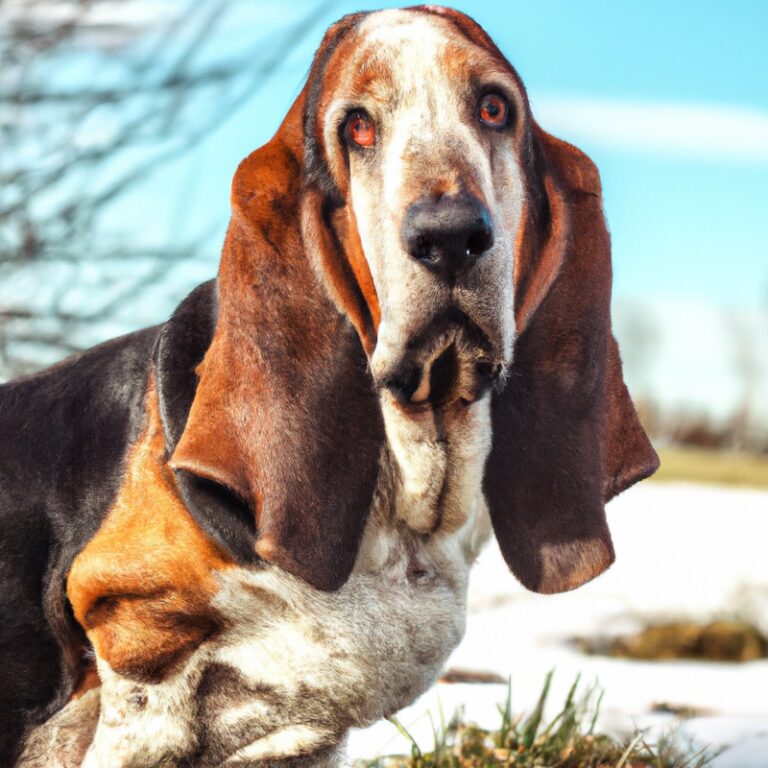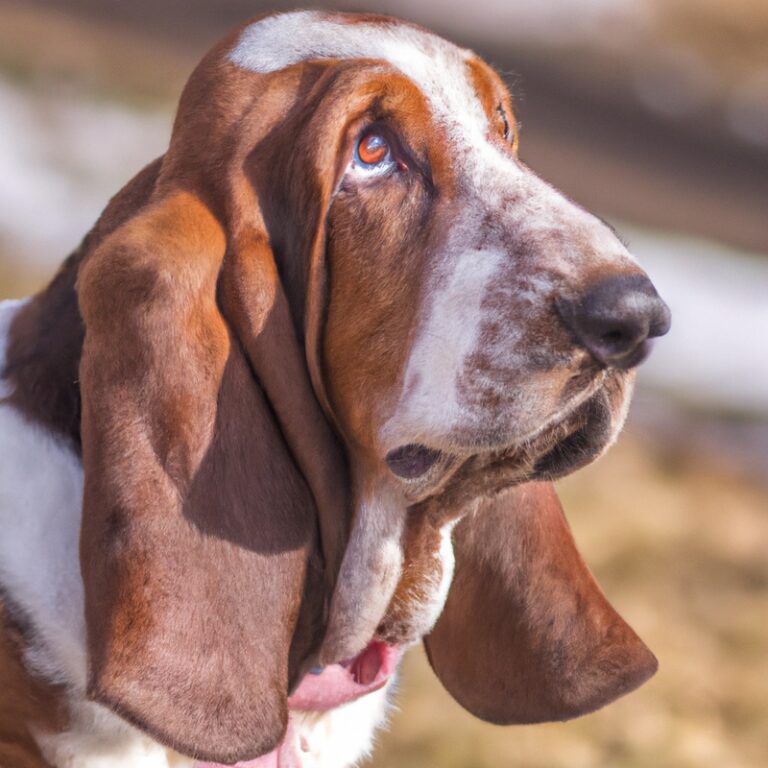Can Basset Hounds Be Trained To Be Working Dogs?
Key Takeaways:
- Basset Hounds have a low success rate as working dogs due to their stubborn and independent nature.
- While Basset Hounds can be trained to perform basic tasks, their scent-driven instincts make them less suitable for demanding working roles.
- The breed’s physical characteristics, such as their short legs and long ears, can also limit their ability to excel in various working tasks.
- However, individual Basset Hounds may show potential for certain specific roles, but overall, they are better suited as companion pets rather than working dogs.
Have you ever wondered if those adorable, droopy-faced Basset Hounds can be more than just family pets? Can they actually be trained to become working dogs?
Well, you’re in for an interesting ride because I’m here to shed light on this topic.
As someone who has had personal experience with these fascinating creatures and a passion for dog training, I can confidently say that training Basset Hounds as working dogs can be quite a challenge. In this article, we’ll explore the unique characteristics of Basset Hounds, the potential roles they can take on, and the considerations to keep in mind when training them for these roles.
So, grab a cup of coffee, get comfortable, and let’s dive in!
| Working Dog Breeds | Basset Hounds |
| Ease of Training | Challenging |
| Intelligence | Medium |
| Physical Abilities | Limited |
| Energy Level | Low |
| Scenting Skills | Excellent |
| Herding Skills | Poor |
| Working Roles | Search and Rescue, Tracking, Detection |
| Temperament | Gentle, Affectionate |
| Training Challenges | Stubborn, Easily Distracted |
Overview of training working dogs
Definition of a working dog
A working dog is a type of dog that is trained to perform specific tasks or jobs.
These tasks can vary widely depending on the breed and training, but can include tasks such as search and rescue, herding livestock, assistance for people with disabilities, or detection of drugs or explosives.
Working dogs often have specialized traits, such as a strong work ethic, intelligence, and a willingness to learn and follow commands.
They play a vital role in various industries and contribute to the betterment of society.

Types of working dogs and their roles
There are various types of working dogs, each with their own unique roles and responsibilities.
Here are some examples:
- Service Dogs: These dogs are trained to assist individuals with disabilities, such as guide dogs for the visually impaired or hearing dogs for the deaf.
- Search and Rescue Dogs: These dogs are trained to locate missing persons in various environments, including wilderness, disaster sites, or during water rescues.
- Police Dogs: Also known as K-9 units, these dogs assist law enforcement in tasks such as drug detection, bomb detection, tracking suspects, and apprehending criminals.
- Therapy Dogs: These dogs provide emotional support and comfort to people in hospitals, nursing homes, schools, and other settings.
- Herding Dogs: These dogs help farmers by controlling and moving livestock, such as sheep or cattle.
- Hunting Dogs: These dogs assist hunters by retrieving game, tracking scents, and flushing out birds or other animals.
- Sled Dogs: Used primarily in colder climates, sled dogs are trained to pull sleds and transport goods or people over snowy terrain.
- Military Dogs: These highly trained dogs assist the military in tasks such as explosives detection, patrol work, and search operations.
These are just a few examples of the types of working dogs and the valuable roles they play in various fields.
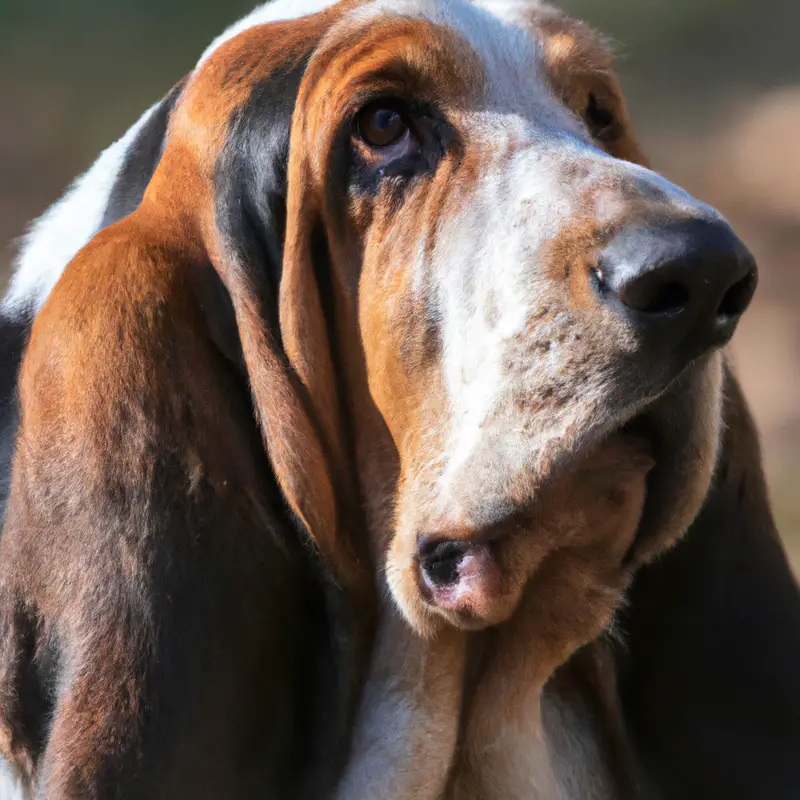
Common breeds used as working dogs
Some common breeds that are often used as working dogs include Border Collies, German Shepherds, Labrador Retrievers, Golden Retrievers, and Belgian Malinois.
These breeds possess natural abilities and traits that make them suitable for various working roles, such as herding, search and rescue, tracking, and assistance work.
They excel in tasks that require intelligence, agility, stamina, and a strong work ethic.
Their trainability and willingness to please also contribute to their effectiveness as working dogs.
Characteristics of Basset Hounds
History and origins of Basset Hounds
Basset Hounds have a fascinating history that can be traced back to France.
They were developed in the 16th century by monks who wanted a slower, shorter-legged hound for hunting small game.
These dogs were then refined by French breeders, and their distinct features, such as long ears and droopy skin, were established.
Basset Hounds were later brought to England in the mid-1800s, where they gained popularity as scent hounds.
Today, they are beloved pets known for their gentle nature and excellent sense of smell.
Physical traits and temperament of Basset Hounds
Basset Hounds are known for their unique physical traits and laid-back temperament.
With their droopy ears, long bodies, and short legs, they have a distinctive appearance that sets them apart.
Their loose skin and wrinkles add to their charm, while their expressive eyes convey a friendly and gentle nature.
In terms of temperament, Basset Hounds are typically known for being patient and good-natured.
They are generally friendly and social dogs, getting along well with people and other animals.
While they may appear a bit stubborn at times, they are also very loyal and devoted to their families.
Basset Hounds have a moderate energy level and enjoy moderate exercise.
They may not be the fastest or most agile dogs, but they have a keen sense of smell and are known for their tracking abilities.
Their inherent scenting instincts make them excellent candidates for activities like scent detection work or search and rescue.
Basset Hounds’ natural abilities and instincts
Basset Hounds have several natural abilities and instincts that make them unique.
Firstly, they have a tremendous sense of smell, which comes in handy for tracking scents.
Their large ears also help them pick up sounds and locate their prey easily.
Basset Hounds are known for their persistence and determination, which makes them excellent at following trails and staying on track.
Additionally, their calm and gentle disposition enables them to work well with other animals, making them great team players.
These natural abilities and instincts make Basset Hounds well-suited for certain working roles.
Can Basset Hounds be trained as working dogs?
Challenges of training Basset Hounds as working dogs
Training Basset Hounds as working dogs can pose several challenges.
Firstly, their stubborn nature can make it difficult to motivate them during training sessions.
Secondly, their independent streak often leads to a lack of focus and distractibility.
Thirdly, their scent-driven instincts may cause them to become easily distracted by interesting smells in their surroundings.
Additionally, their low energy levels and shorter attention spans can make consistent training a challenge.
Despite these challenges, with patience, positive reinforcement, and dedicated training, Basset Hounds can still excel in certain working roles.
Potential roles for Basset Hounds as working dogs
Basset Hounds may not be the typical breed for working dog roles, but they can still excel in certain areas.
Here are some potential roles for Basset Hounds as working dogs:
- Scent detection: With their powerful sense of smell, Basset Hounds can be trained for tasks like searching for explosives, drugs, or missing persons.
- Therapy work: Basset Hounds’ calm and gentle nature make them great candidates for therapy or emotional support dogs, bringing comfort and companionship to those in need.
- Tracking: Their excellent tracking abilities make Basset Hounds suitable for search and rescue operations, particularly in locating lost individuals or tracking game for hunters.
While they may not be suited for physically demanding roles, Basset Hounds can still make a valuable contribution in these specialized areas.
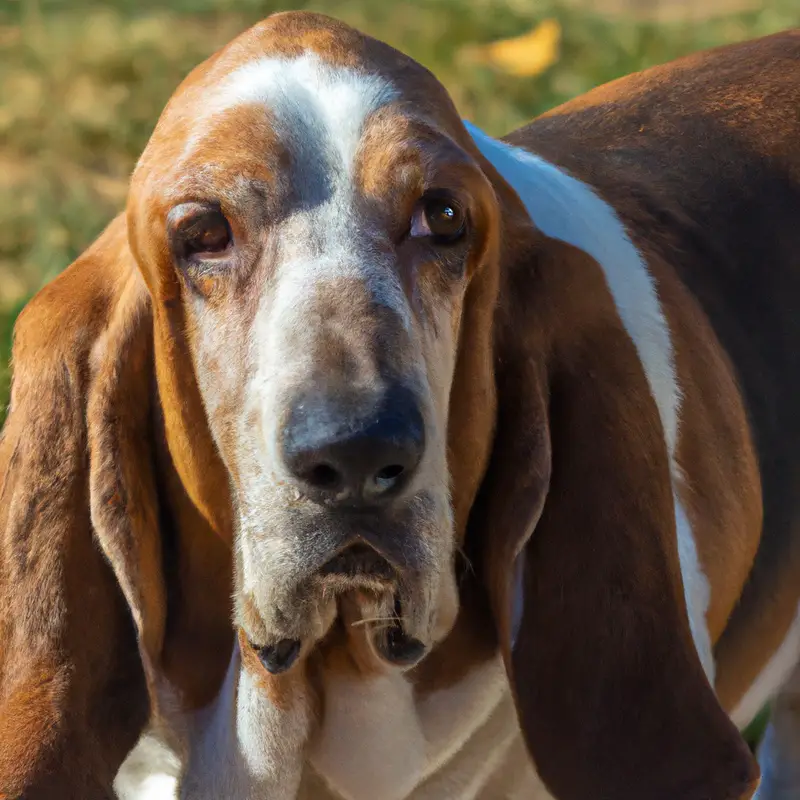
Training methods and techniques for Basset Hound
Training Basset Hounds as working dogs requires patience, consistency, and positive reinforcement. Here are some effective methods and techniques to consider:
- Start with basic obedience training: Teach your Basset Hound essential commands like sit, stay, and come. Use treats and praise to reward good behavior.
- Socialize early and often: Expose your Basset Hound to different people, animals, and environments from an early age to help them become well-rounded and confident.
- Use scent work: Basset Hounds have excellent scenting abilities, so harness this natural talent by engaging them in scent-tracking games or tasks.
- Provide mental stimulation: Basset Hounds can get bored easily, so keep their minds active by introducing puzzle toys or interactive games that challenge them mentally.
- Be patient and positive: Basset Hounds are known for their stubborn nature, so avoid harsh punishments or forceful methods. Instead, use positive reinforcement and rewards to motivate and encourage them.
Remember, training a Basset Hound as a working dog may require extra time and effort compared to other breeds, but with the right techniques and consistent training, they can excel in their roles.
Considerations for training Basset Hounds as working dogs
Choosing the right Basset Hound for working dog training
When choosing a Basset Hound for working dog training, there are a few key factors to consider. First, look for a Basset Hound with a strong drive to work and learn.
They should be attentive, eager to please, and have a good work ethic.
Additionally, consider their overall health and physical capabilities, as working dogs require stamina and endurance. Lastly, evaluate their temperament, ensuring they are friendly, confident, and able to handle the demands of the work.
Taking these factors into account will help you select a suitable Basset Hound for training as a working dog.
Socialization and obedience training for Basset Hounds
Socialization and obedience training are important for Basset Hounds to become well-behaved and sociable working dogs. It is best to start socializing them from a young age to expose them to various people, animals, and environments.
Obedience training helps them learn basic commands and proper behavior.
Positive reinforcement and consistency are key in training Basset Hounds. Patience and understanding their independent nature is essential.
Regular training sessions and social interactions will help them develop into confident and reliable working dogs.
Physical requirements and exercise for working Basset Hounds
Working Basset Hounds have specific physical requirements and exercise needs.
Due to their long, low bodies, it is important to prevent them from becoming overweight, as excess weight can strain their joints.
Regular exercise is vital to keep them fit and mentally stimulated.
Daily walks, play sessions, and mental challenges like puzzle toys can help meet their exercise needs.
However, it’s important to avoid overexertion and excessive jumping to protect their spine.
Final Verdict
While Basset Hounds may not be the first breed that comes to mind when thinking of working dogs, they do possess certain qualities that make them suitable for certain roles.
Their strong sense of smell, intelligence, and loyalty can be harnessed with the right training and socialization.
However, it is important to acknowledge the challenges and limitations of training Basset Hounds for certain working tasks due to their physical limitations and stubborn nature.
With the right training methods, perseverance, and careful consideration of their individual abilities, Basset Hounds can make valuable and unique working partners in specific roles.
Trust me, I have seen it happen firsthand.


